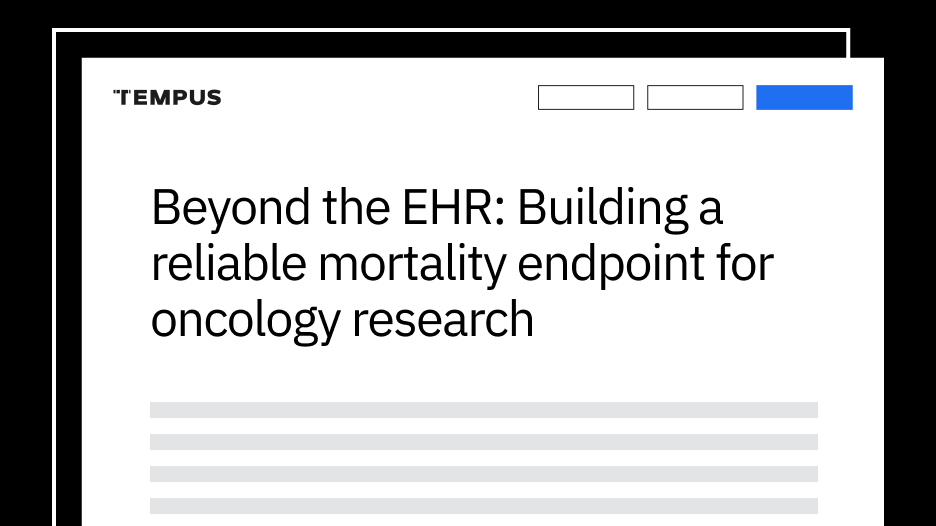-
PROVIDERS
New MRD Medicare Coverage for Select Indications*
*When coverage criteria are met. Additional criteria and exceptions for coverage may apply.
-
LIFE SCIENCES
Register now
UPCOMING WEBINARTranslating data into an actionable R&D strategy
-
PATIENTS
It's About Time
View the Tempus vision.
- RESOURCES
-
ABOUT US
View Job Postings
We’re looking for people who can change the world.
- INVESTORS
08/12/2024
University of Minnesota
Researchers from Tempus partnered with the University of Minnesota to study how gHRR alterations may influence somatic mutational landscapes in BRCA-associated cancers.
The underlying genetic background underpinning prostate cancer has the potential to influence mutations that occur in the tumor during progression of the disease. This project looks at a specific group of patients that have genetic germline mutations in ATM, BRCA2, CHEK2, and PALB2 in order to determine if these baseline mutations result in distinct patterns of somatic mutations. Based on this analysis, further studies in other cancer types may be warranted to understand the link of patients germline and how it translates to tumor progression in prostate cancer.
“We interrogated germline-somatic interaction in four BRCA-associated cancers (breast, ovarian, pancreatic, and prostate cancers) to compare tumor molecular landscapes in germline-altered cancers versus their sporadic counterparts,” said Emmanuel Antonarakis, MD, Associate Director of Translational Research at the University of Minnesota Masonic Cancer Center. “We discovered that patients with germline BRCA1-altered cancers displayed an enrichment of somatic TP53 alterations, while germline ATM-altered cancers showed a depletion of TP53 alterations. We postulate that cancers arising in germline ATM mutation carriers are dependent upon wild-type TP53 activity (“synthetic essentiality”), suggesting that perturbation of the p53 pathway might represent a therapeutic strategy for ATM-altered cancers.”
This study was presented at the ASCO Annual Meeting in 2023.
-
02/12/2026
Beyond the EHR: Building a reliable mortality endpoint for oncology research
Emilie Scherrer, Senior Director and Head of Outcomes Research, explains how Tempus’ validated, composite mortality endpoint overcomes data fragmentation to provide a trustworthy foundation for real-world evidence.
Read more -
02/05/2026
Accelerating a phase 1 oncology trial: The TIME Network’s impact on patient enrollment
For life sciences companies, speed and precision are paramount. The ability to efficiently launch a Phase 1 trial and generate early clinical data is fundamental to long-term success. The Tempus TIME Trial Network provides the infrastructure to help achieve these goals.
Read more -
02/05/2026
Building the engine to scale data abstraction through AI
Learn how Tempus’ AI engine, built on agentic architectures, transforms unstructured clinical text into analysis-ready real-world data. Tempus AI leaders detail the multi-layered system that ensures speed, scale, and fidelity.
Read more


